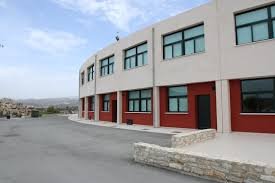New Delhi, May 2025 – In a significant move to enhance the quality of education in the capital, the New Delhi Municipal Council (NDMC) has signed Memorandums of Understanding (MoUs) with four premier schools in Delhi to establish activity-based learning hubs. This initiative aims to promote experiential learning, foster creativity, and provide holistic development opportunities for students across NDMC-run schools.
Four Schools Collaborate for Innovative Education
The NDMC has partnered with Sardar Patel Vidyalaya, Modern School, Guru Harkrishan Public School, and St Thomas’ Girls Senior Secondary School under one-year agreements to facilitate knowledge sharing and collaborative teaching methods. These schools will lead the charge in their respective areas of expertise, helping to create vibrant learning environments focused on student engagement and practical skills.
Focus Areas of Each School
- Sardar Patel Vidyalaya will emphasize environmental education, art, and mathematics for primary school students. Their approach includes hands-on activities and projects to make these subjects more accessible and interesting.
- Modern School is tasked with providing teacher training in innovative play-way pedagogy, improving English language instruction, leadership development, and supporting children with special needs. They will also contribute in the fields of cultural and sports activities.
- Guru Harkrishan Public School will focus on promoting music, sports, Punjabi language, and cultural training, enriching students’ connection to heritage and physical wellbeing.
- St Thomas’ Girls Senior Secondary School will spearhead project-based learning and work towards inclusive education, ensuring that students from diverse backgrounds receive equitable learning opportunities.
Regular Engagement and Activity Calendar
These partnerships are not limited to one-time events. NDMC and the schools will engage in regular interactions through fortnightly and monthly collaborations. After the summer break, an activity calendar will be launched to schedule workshops, training sessions, student activities, and cultural programs throughout the academic year.
Impact on Students and Educators
NDMC officials believe that this initiative will raise the overall standards of education by introducing innovative and interactive teaching methods. Activity-based learning hubs are expected to help students develop critical thinking, creativity, and social skills beyond the traditional classroom setup.
Speaking about the initiative, NDMC Chairman Keshav Chandra expressed optimism:
“By leveraging the strengths of these esteemed institutions, we aim to empower both students and educators. This collaboration will bring new energy to learning and prepare our children better for future challenges.”
The Bigger Picture: Modernizing Education in Delhi
The creation of activity-based learning hubs aligns with the broader educational goals of Delhi’s administration, focusing on holistic development, inclusive education, and skill-building. As schools evolve to meet 21st-century challenges, such collaborative efforts are critical in ensuring that students receive well-rounded and practical education.
What This Means for Parents and Students
For parents, this initiative promises more engaging and varied learning opportunities for their children within the public school system. For students, it means access to innovative programs, enhanced teacher support, and exposure to extracurricular activities that contribute to overall personality development.
Frequently Asked Questions
Q1: What are activity-based learning hubs?
Activity-based learning hubs are specially designed programs or centers within schools that emphasize hands-on, experiential learning methods. Instead of traditional rote learning, students engage in projects, interactive activities, and practical exercises that help build critical thinking, creativity, and real-world skills.
Q2: Which schools are involved in the NDMC’s activity-based learning initiative?
NDMC has partnered with four prominent Delhi schools: Sardar Patel Vidyalaya, Modern School, Guru Harkrishan Public School, and St Thomas’ Girls Senior Secondary School. Each school contributes expertise in specific educational areas.
Q3: What is the duration of these partnerships?
The Memorandums of Understanding (MoUs) signed between NDMC and these schools are for a one-year period, with regular reviews and the possibility of extension based on outcomes.
Q4: What are the key focus areas for each school?
- Sardar Patel Vidyalaya: Environmental education, art, and mathematics for primary students.
- Modern School: Teacher training on play-way pedagogy, English language skills, leadership development, and support for children with special needs, along with cultural and sports activities.
- Guru Harkrishan Public School: Music, sports, Punjabi language, and cultural training.
- St Thomas’ Girls Senior Secondary School: Project-based learning and inclusive education.
Q5: How often will the schools and NDMC collaborate?
The schools and NDMC will engage in regular interactions, including fortnightly and monthly meetings, workshops, and training sessions to ensure smooth implementation and progress.
Q6: Will there be an activity calendar for students?
Yes, an activity calendar will be launched after the summer break to schedule various workshops, student activities, teacher training sessions, and cultural events throughout the academic year.
Q7: What benefits can students expect from these learning hubs?
Students will experience a more engaging and interactive education style, which can enhance creativity, critical thinking, and social skills. The hubs also aim to provide inclusive and supportive learning environments, catering to diverse student needs.
Q8: How will this initiative impact teachers?
Teachers will receive specialized training in innovative pedagogical methods, such as play-way learning and inclusive education strategies. This will improve their teaching skills and enable them to better support all students, including those with special needs.
Q9: How does this initiative fit into the broader educational goals of Delhi?
This program aligns with Delhi’s focus on modernizing education by promoting holistic development, inclusive learning, and skill-building. It reflects a shift towards experiential education that prepares students for future academic and career challenges.
Q10: Are there plans to expand this initiative beyond the four schools?
Currently, the initiative is set for one year with these four schools. Depending on its success, NDMC may consider expanding the program to include more schools across Delhi in the future.
Q11: Will new facilities or infrastructure be developed as part of this initiative?
The primary focus is on pedagogy and collaborative teaching methods. However, as the program evolves, schools may upgrade or introduce new facilities to support activity-based learning.

